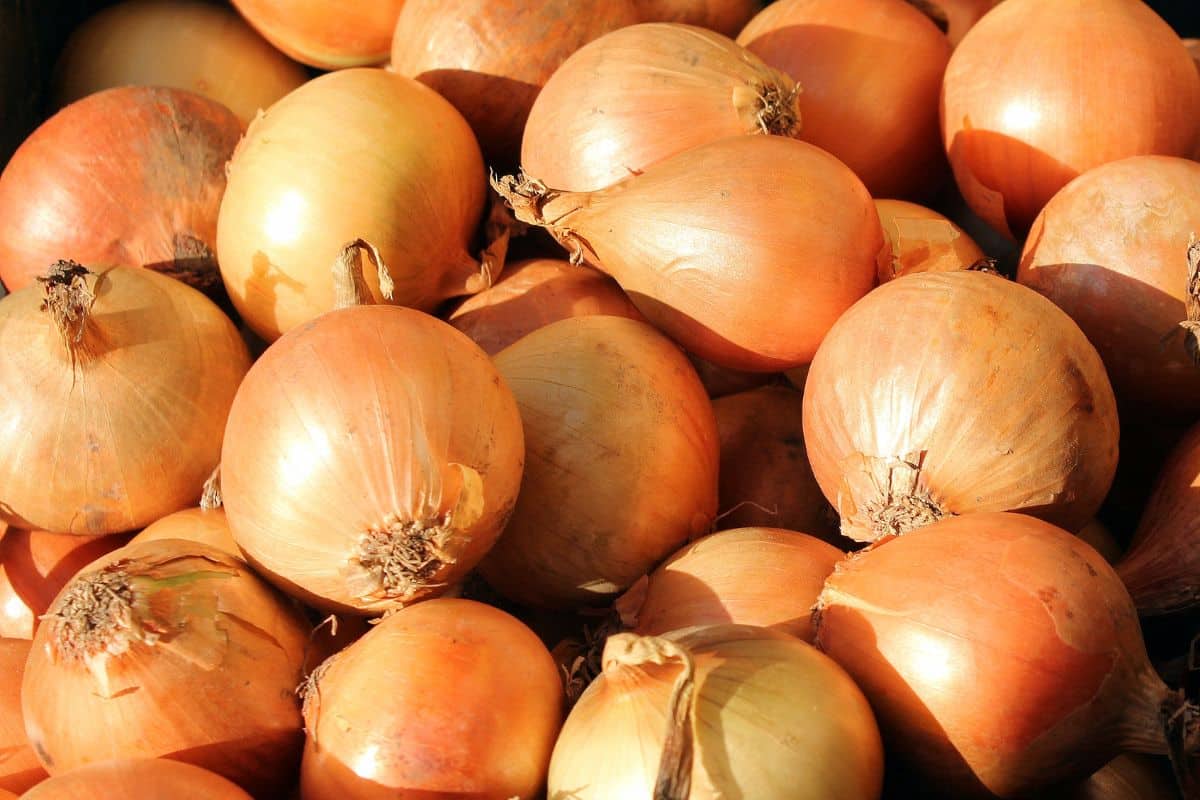We mindlessly toss an onion into almost every savory dish we cook, but unless we’re making onion rings or French onion soup, they rarely take center stage—unless we’re cooking with Vidalia onions.
Vidalias are a protected variety of onion known as “the world’s sweetest onion.” Not only are they packed with flavor, but they also come with a fascinating backstory.
Here are seven sweet facts about Vidalia onions that prove they’re anything but ordinary.
1. Vidalia Onions Can Only Be Grown in Georgia
According to the Vidalia Onion Act of 1986, only 20 counties in the United States—all located in Georgia—are legally allowed to grow and sell onions under the Vidalia name. The onions are named after the small town of Vidalia, GA, and in 1990, they became Georgia’s official state vegetable.
2. Vidalias Are Scientifically Sweeter Than Other Onions
Vidalias are grown from the short-day yellow Granex seed, which originated in Texas. But it’s Georgia’s low-sulfur, sandy soil and the region’s climate that give the onion its mild, sweet flavor—making it truly one of a kind.
3. Put Away the Kleenex… For Now
Onions contain pyruvic acid, which is responsible for their pungency and tear-inducing effects. Vidalias have lower levels of this chemical, which makes them sweeter and far less likely to make you cry. As one fan put it, “The only time Vidalias make you cry is when they’re all gone.”
4. Vidalia Onions Are Heavily Regulated
What began as a local curiosity during the Great Depression has grown into a $150 million industry. The Vidalia Onion Committee oversees the production, quality, and marketing of these onions. Growers must wait until the last week of April to begin shipping, ensuring only fully matured onions hit the market.
5. Vidalias Are Not Without Controversy
Some growers have challenged the strict harvest start dates, arguing that they should decide when to pick their onions. But the Vidalia Onion Committee insists that early harvesting could damage the onion’s reputation. The legal battle is ongoing, highlighting just how seriously this crop is taken in Georgia.
6. There’s a Vidalia Onion Museum
Located in Vidalia, Georgia, the Vidalia Onion Museum celebrates the economic, cultural, and culinary significance of this famous crop. The museum spans 1,300 square feet and currently holds a 4.5-star rating on TripAdvisor.
7. Vidalia Onions Are a Versatile Ingredient
While Vidalias can be used anywhere sweet onions are called for, their unique flavor deserves the spotlight. Here’s a classic Georgia-style preparation highlighted by the New York Times:
- Cut a cone from the top of a whole, peeled onion.
- Fill the cavity with butter, salt, and pepper.
- Wrap the onion in foil and roast at 350°F for 45 minutes to 1 hour.
- Optional: Add a bouillon cube or a few drops of Worcestershire sauce. For a bolder flavor, wrap it in bacon and grill.
Other favorite ways to enjoy Vidalias include grilling slices alongside peaches or slow-cooking them with barbecue sauce.
Sweet, storied, and unmistakable—Vidalia onions are worth celebrating every spring.

